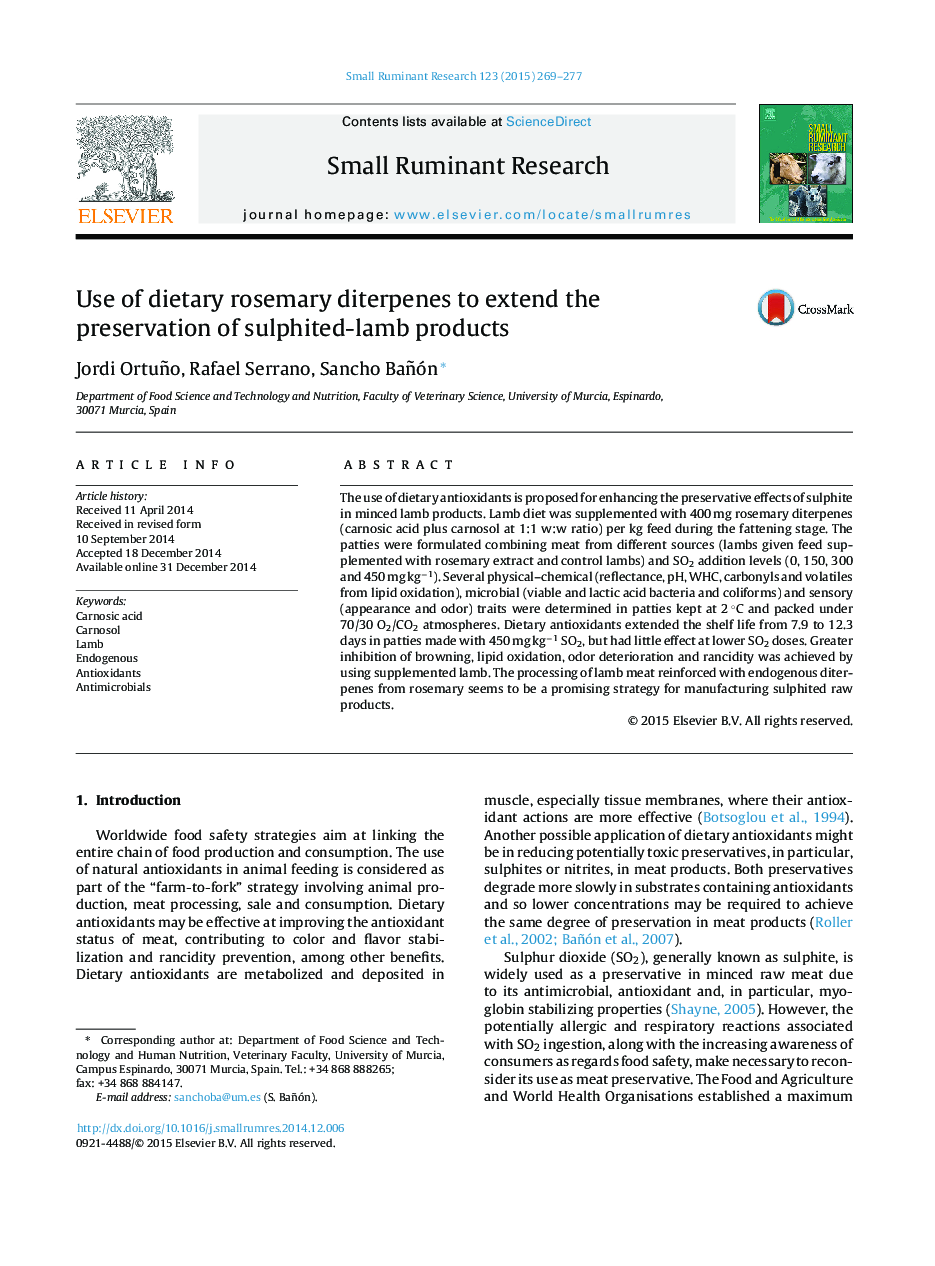| Article ID | Journal | Published Year | Pages | File Type |
|---|---|---|---|---|
| 5795497 | Small Ruminant Research | 2015 | 9 Pages |
â¢The use of dietary carnosic acid and carnosol is proposed to preserve sulphited-lamb products.â¢Lamb preservation through SO2 may be reinforced by endogenous antioxidants.â¢Meat browning, lipid oxidation, odor deterioration and rancidity are inhibited.â¢Dietary antioxidants extend the shelf life time of high-sulphited lamb patties.
The use of dietary antioxidants is proposed for enhancing the preservative effects of sulphite in minced lamb products. Lamb diet was supplemented with 400 mg rosemary diterpenes (carnosic acid plus carnosol at 1:1 w:w ratio) per kg feed during the fattening stage. The patties were formulated combining meat from different sources (lambs given feed supplemented with rosemary extract and control lambs) and SO2 addition levels (0, 150, 300 and 450 mg kgâ1). Several physical-chemical (reflectance, pH, WHC, carbonyls and volatiles from lipid oxidation), microbial (viable and lactic acid bacteria and coliforms) and sensory (appearance and odor) traits were determined in patties kept at 2 °C and packed under 70/30 O2/CO2 atmospheres. Dietary antioxidants extended the shelf life from 7.9 to 12.3 days in patties made with 450 mg kgâ1 SO2, but had little effect at lower SO2 doses. Greater inhibition of browning, lipid oxidation, odor deterioration and rancidity was achieved by using supplemented lamb. The processing of lamb meat reinforced with endogenous diterpenes from rosemary seems to be a promising strategy for manufacturing sulphited raw products.
